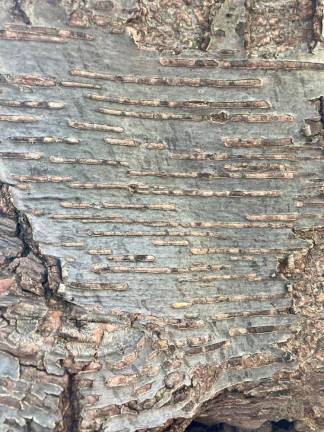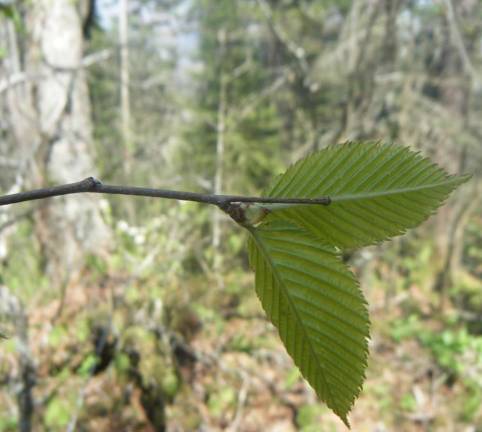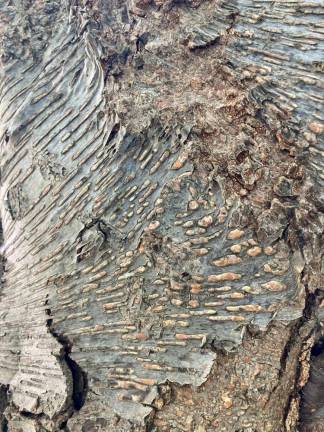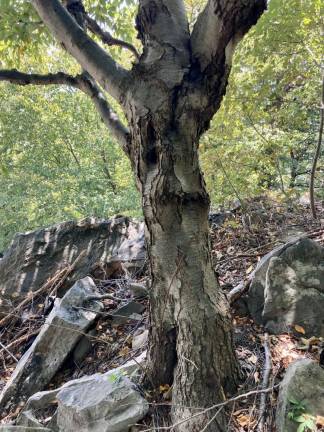Nature’s aspirin freshens breath too




Black birch, cherry birch, sweet birch. Call this tree what you want, Betula lenta is prevalent throughout our northeastern woods. This distinctive tree thrives from valley to ridge, and provides an exceptional aroma, flavor and medicine.
Many trees can be tricky to identify in the winter, but black birch’s smooth, gray bark stands out in stark contrast to the snowy landscape. Black birch bark will never peel – although it can crack and fissure with age – and is marked by slender horizontal lines called lenticels. Lenticels are pores that allow trees to breathe through their trunks; all trees have them although we usually don’t see them. Birch’s prominent lenticels earned black birch its alternate name, cherry birch. Cherry trees have equally visible lenticels, making it black birch’s most common lookalike. However, crack a black birch twig to reveal its distinctive, sweet, wintergreen aroma. Nibble a twig like a woodland toothpick for a quick breath freshener.
You’re likely familiar with the flavor of birch from birch beer and root beer, and yep, those twigs smell just the same as root beer tastes! Today few, if any, root beers contain actual birch, but historically it was a key ingredient. Black birch can be tapped for its watery sap in early spring just like maples. But birch sap is so watery that it takes over 100 gallons of sap to make one gallon of syrup. This sap was historically added to a tea of wild sarsaparilla and sassafras roots and fermented, for a true root beer. If simmering 100 gallons of sap sounds like a lot of work (I admit I have yet to give it a go), break a twig from a drooping bough in early spring, open your mouth and let subtly sweet wintergreen water quench your thirst.
For a whole mug of woodland refreshment, brew up some sweet birch tea. Snip a slender twiggy branch and break into smaller pieces. Steep twigs in hot water for ten to twenty minutes, strain and add honey. Birch twig tea is earthy red in color, rich in flavor, and confers medicinal properties. That signature wintergreen flavor indicates methyl-salicylate content, a constituent chemically similar to salicylic acid (the basis for aspirin). Sip a cup of black birch tea to relieve cold achy joints, a stubborn headache, general discomfort or just because it tastes that good.